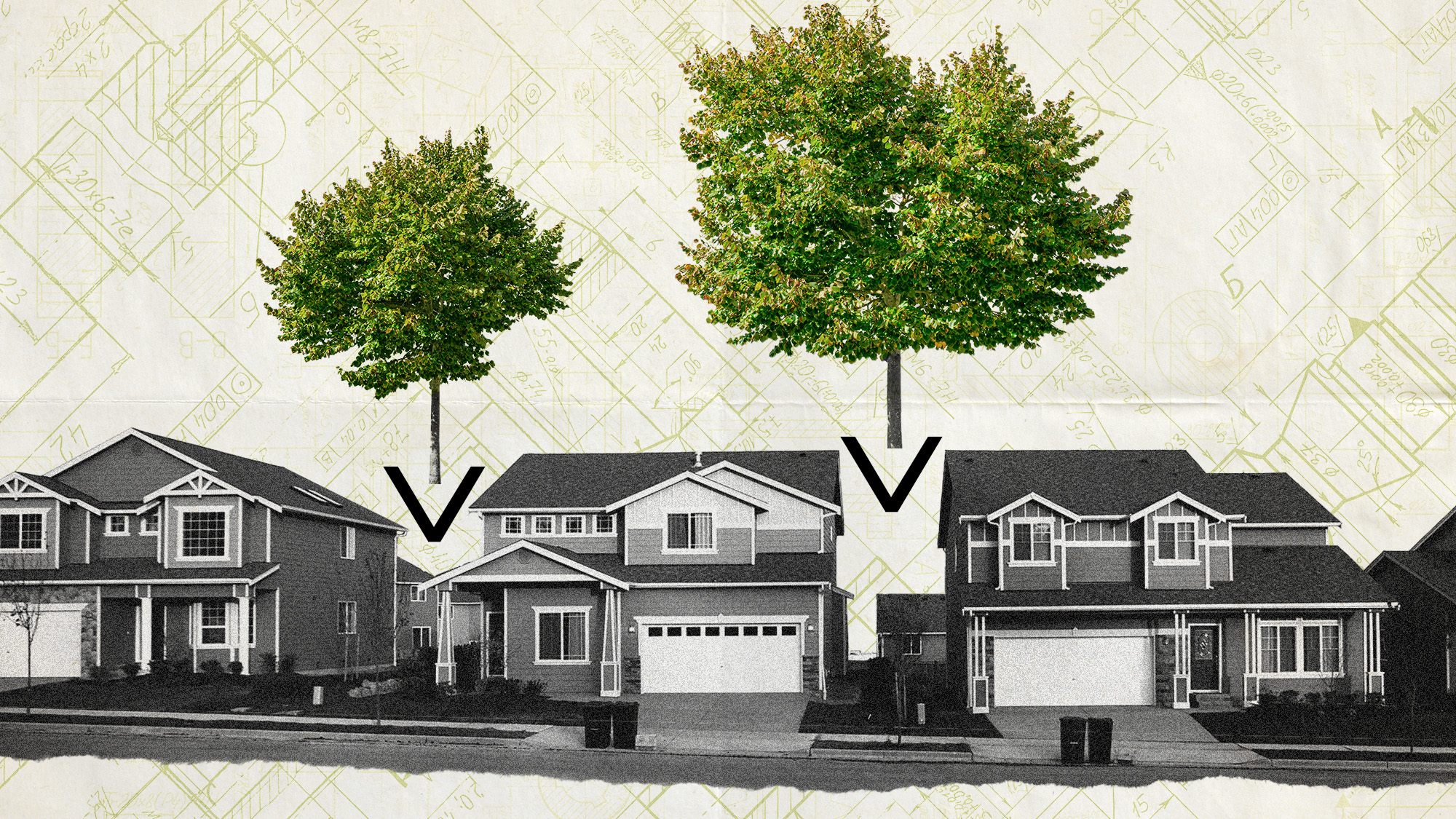The US government wants to turn concrete jungles into real jungles
Adding more trees to some cities is the plan


A free daily email with the biggest news stories of the day – and the best features from TheWeek.com
You are now subscribed
Your newsletter sign-up was successful
The U.S. government has allocated $1.13 billion to fund more than 300 projects to plant trees in cities. Having greenery has been shown to reduce city heat, which could help cool cities affected by climate change's warming effects. More green space can also improve both physical and mental health, leading to better social and economic outcomes.
Why is the government planting trees?
Cities tend to be warmer than their suburban and rural counterparts, largely due to the urban heat-island effect. "Structures such as buildings, roads and other infrastructure absorb and re-emit the sun's heat more than natural landscapes such as forests and water bodies," said the Environmental Protection Agency. In turn, urban areas "become 'islands' of higher temperatures relative to outlying areas" because "these structures are highly concentrated and greenery is limited." Too-hot-to-handle-it cities are only going to become a bigger problem as climate change continues to bring record-breaking temperatures.
The U.S. government has a proposed solution: planting more trees. "In many ways, this is more than a moment in the sun. This is, I believe, the new normal," Dan Lambe, the chief executive of the Arbor Day Foundation, said to The Associated Press. Trees are "not just a nice-to-have, they're a must-have." The Biden administration allocated more than $1B, as part of the Inflation Reduction Act, to tree-planting projects across the country. "We believe we can create more resilient communities in terms of the impacts of climate," Agriculture Secretary Tom Vilsack told reporters, and "mitigate extreme heat incidents and events."
The Week
Escape your echo chamber. Get the facts behind the news, plus analysis from multiple perspectives.

Sign up for The Week's Free Newsletters
From our morning news briefing to a weekly Good News Newsletter, get the best of The Week delivered directly to your inbox.
From our morning news briefing to a weekly Good News Newsletter, get the best of The Week delivered directly to your inbox.
What are the benefits?
Trees can significantly cool an area, potentially saving lives and reducing the need for air conditioning. Having more green ways to reduce temperatures can also prevent more stress on the climate by reducing the need for fossil fuel-dependent cooling systems. "This urgently needed potential for carbon negative cooling is why cities across America and around the world are finally investing in urban tree cover, from famously hot cities getting hotter such as Phoenix to famously cool cities that are rapidly heating up, such as Seattle and Boston," Jad Daley, the president and CEO of American Forests said in a piece for Time.
Low-income neighborhoods and communities of color within cities tend to have even fewer trees and greenery than their predominantly white counterparts. A study published in the journal npj Urban Sustainability found that neighborhoods comprised predominantly of people of color had on average 11% less tree canopy coverage than white neighborhoods. "The new funding is being explicitly focused to address a systemic lack of tree cover … that makes these parts of our cities hotter and more polluted," said Daley. "The additional exposure to heat and air pollution caused by lack of trees is particularly threatening for people who already have greater vulnerabilities."
In general, "communities with access to trees and green spaces are associated with improved health outcomes, reduced crime, lower average temperatures and an influx of other kinds of investments and new economic opportunities," said the U.S. Department of Agriculture. "Everyone should have access to nature," Brenda Mallory, chair of the White House Council on Environmental Quality said to reporters. "Urban forests can really play a key role in ensuring both that access but also increasing the climate resilience of communities, helping reduce extreme heat and making communities more livable."
A free daily email with the biggest news stories of the day – and the best features from TheWeek.com
Devika Rao has worked as a staff writer at The Week since 2022, covering science, the environment, climate and business. She previously worked as a policy associate for a nonprofit organization advocating for environmental action from a business perspective.
